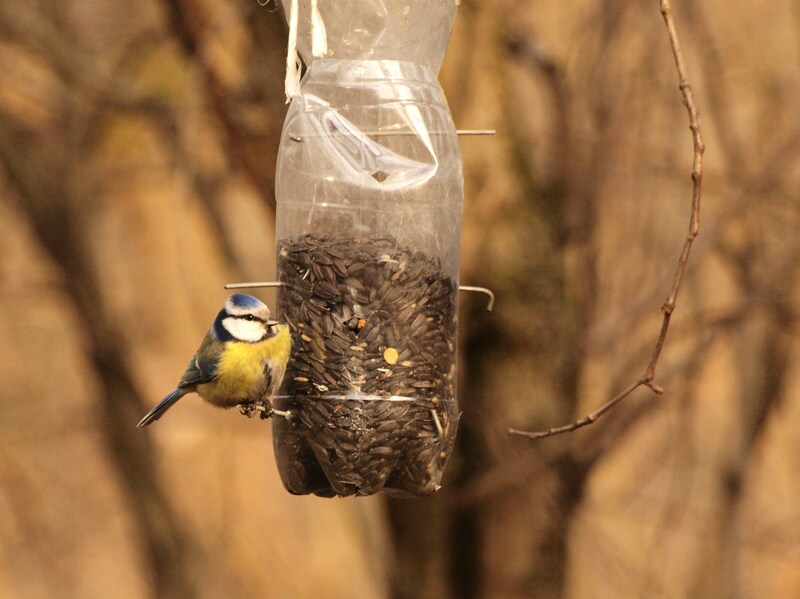Managing green waste efficiently is crucial for sustainable living. With increasing awareness about environmental impact, more individuals and institutions are opting for smarter ways to handle organic waste. Let's delve into the top strategies to cut green waste and make a positive impact on our planet.
Understanding Green Waste
Green waste refers to organic waste that is biodegradable and comes mainly from gardens or parks. It includes grass clippings, branches, hedge trimmings, and inedible parts of vegetables. Proper disposal and management of this organic waste can significantly reduce your environmental footprint.

Tip #1: Composting
Embrace the Magic of Composting
Composting is one of the most effective ways to recycle green waste. By decomposing organic material into a rich soil amendment, you can enrich your soil naturally. Not only does composting reduce landfill waste, but it also enhances plant growth, making your garden flourish.
Tip #2: Grasscycling
Grasscycling: A Simple Lawn Care Solution
Grasscycling involves leaving grass clippings on your lawn after mowing. These clippings quickly decompose and return vital nutrients to the soil, reducing the need for fertilizers. This practice saves time, money, and significantly cuts down on green waste.
Tip #3: Mulching
Energize Your Garden with Mulch
Mulching is the process of covering soil with organic materials like leaves and bark. It prevents weed growth, retains soil moisture, and adds nutrients as it decomposes. Mulching is a strategic way to repurpose yard waste into beneficial garden materials.
Tip #4: Community Green Waste Programs
Leverage Local Initiatives
Many communities offer green waste recycling programs. These programs can turn clippings and foliage into commercial-grade compost or mulch. Participating in such community efforts ensures that your waste is managed in an environment-friendly manner.
Tip #5: Vermicomposting
Worms to the Rescue: Efficient Organic Waste Reduction
Vermicomposting uses worms to decompose organic waste efficiently. It's ideal for small spaces or urban settings. The nutrient-rich compost produced is perfect for indoor plants and small gardens. This method further reduces the volume of green waste.
Tip #6: Smart Plant Choices
Eco-Friendly Flora Selections
Choosing the right plants can minimize maintenance and green waste. Native plants, for instance, are better adapted to your local environment and require less trimming and fertilization. Planning your garden with lower-maintenance plants can significantly reduce garden waste.
Tip #7: Controlled Pruning
Efficient Trimming Techniques
Pruning regularly keeps your plants healthy and manageable. Learn the best times and methods to prune different species to reduce waste and prevent overgrowth. Incorporate strategic trimming to ensure plant health and decreasing the volume of green waste.
Tip #8: Creative Reuse of Yard Waste
Repurposing for Creativity and Function
Logs, branches, and even leaves can be used for arts and crafts, firewood, or as garden decorations. Such practices not only reduce waste but also encourage creative thinking and sustainable living.
Tip #9: Home Recycling Bins
Organized Collection of Green Waste
Using designated bins for green waste at home can make segregation and collection easier. With organized collection systems, more waste can be directed towards composting and recycling programs rather than general waste disposal.

Tip #10: Educational Workshops
Knowledge is Power in Waste Management
Participate in workshops or classes that focus on green waste management. These educational events can offer valuable insights into efficient household practices and community involvement, equipping you with the knowledge to minimize waste.
Conclusion
Adopting these smart strategies for green waste management not only helps the environment but can also bring substantial benefits to your own garden. Whether through composting, mulching, or participating in community programs, each action plays an essential role in reducing our environmental impact. Consider implementing these green waste reduction techniques to contribute to a more sustainable future.
By using these tips, you're not only disposing of waste but also transforming it into a resource. Every small effort counts towards a greener planet. So start today, and make a tangible impact!
- Harness the potential of composting for a healthier garden.
- Save time and enrich your lawn with grasscycling.
- Consider mulching for optimal garden health.
- Join local green waste programs for broader impact.
- Explore vermicomposting for effective waste management.
- Choose smart plants for reduced maintenance.
- Apply pruning techniques for waste reduction.
- Repurpose garden waste creatively.
- Organize home waste with recycling bins.
- Enhance your knowledge through workshops.